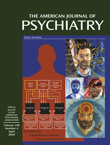Suicide Risk in Placebo-Controlled Studies
To the Editor: The article by Jitschak G. Storosum, M.D., et al. (1) is potentially important for its argument for the ethical acceptability of using placebo-controlled trials in studies of major depression. However, the conclusions in the abstract do not reflect the substance of the text.
In the abstract it is stated without any caveats that the “Fear of increased risk of attempted suicide in the placebo groups should not be an argument against performing short-term and long-term, placebo-controlled trials in major depression” (p. 1271). This is in contrast to the text, in which, in regard to short-term studies, it is stated clearly that that is so only when “patients with ‘suicide risk’ [are] indeed excluded” (p. 1274) at entry into a study.
With regard to long-term studies, the authors noted that for the Netherlands data, suicidal subjects were excluded from one of the seven withdrawal studies for sustained responders, but there was no comment on whether those who were suicidal had been excluded before initial treatment in the other studies. There was only one extension study; again, no comment was made about possible prior exclusion, which the authors had already noted had been the case for 64 of 67 short-term studies in the Netherlands for which this criterion could be determined. For the 14 long-term studies located with MEDLINE, it was noted of the three extension studies that suicidal subjects had been “excluded from the group of responders in the short-term phase” (p. 1272), whereas for the 11 withdrawal studies, “The exclusion of suicidal patients was not mentioned explicitly” (p. 1272). However, the absence of evidence of such specific exclusion does not constitute evidence by its absence.
These points are not consistent with an unqualified endorsement of placebo-controlled trials of antidepressants for those with major depression and suicide risk.
1. Storosum JG, van Zwieten BJ, van den Brink W, Gersons BP, Broekmans AW: Suicide risk in placebo-controlled studies of major depression. Am J Psychiatry 2001; 158:1271-1275Link, Google Scholar



